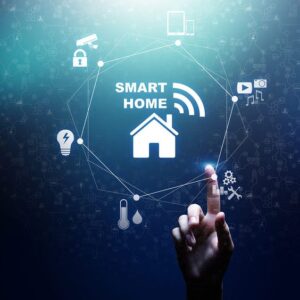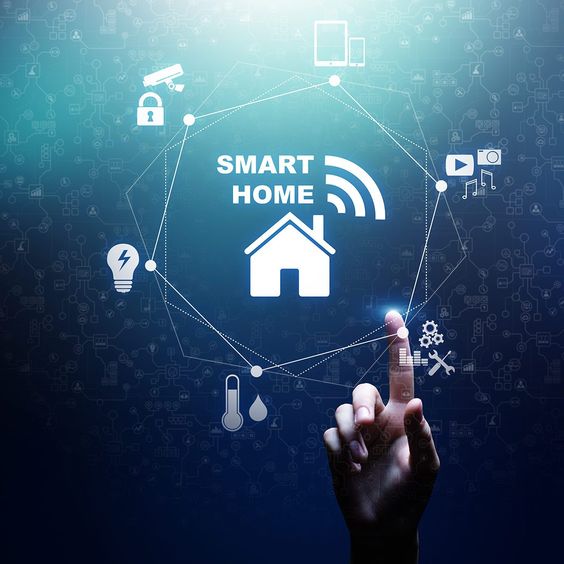As Ghana continues to experience rapid urbanization and technological advancement, the concept of smart homes is becoming increasingly relevant. Smart homes, which are equipped with automated systems that can control various aspects of the household environment, offer numerous benefits that align with the evolving needs and aspirations of modern Ghanaian society. From enhancing security to promoting energy efficiency, smart homes are poised to play a critical role in the future of living in Ghana.
1. Enhancing Security and Safety
Security is a top concern for many homeowners in Ghana, particularly in urban areas where crime rates can be higher. Smart home technology offers a robust solution to this challenge. With features such as surveillance cameras, smart door locks, and alarm systems that can be monitored and controlled remotely, homeowners can enjoy peace of mind knowing that their properties are protected around the clock. These systems provide real-time alerts and can even be integrated with local security services for rapid response in case of emergencies.

2. Promoting Energy Efficiency
Energy efficiency is a growing concern in Ghana, where electricity costs are high and power outages are not uncommon. Smart homes in Ghana can significantly reduce energy consumption through the use of smart thermostats, automated lighting systems, and energy-efficient appliances. These devices can be programmed to operate only when needed, reducing waste and lowering utility bills. In a country where energy resources are precious, the adoption of smart home technology represents a step towards more sustainable living.
3. Increasing Convenience and Comfort
One of the most appealing aspects of smart homes is the convenience they offer. From adjusting the temperature and lighting with a simple voice command to remotely managing household appliances, smart homes are designed to make everyday tasks easier. This convenience is especially valuable in Ghana, where busy lifestyles and long commutes can leave little time for household chores. Smart home systems can automate routine tasks, allowing homeowners to focus on more important aspects of their lives.
4. Supporting Aging in Place
As Ghana’s population ages, there is a growing need for solutions that allow the elderly to live independently and safely in their own homes. Smart home technology can support aging in place by providing features such as fall detection, emergency alerts, and health monitoring systems. These technologies enable seniors to maintain their independence while ensuring that help is readily available when needed. For families, this means greater peace of mind knowing that their loved ones are safe and well cared for.
5. Boosting Property Value
The real estate market in Ghana is becoming increasingly competitive, and homeowners are always looking for ways to enhance the value of their properties. Smart home technology is a strong selling point, as it not only modernizes the home but also adds tangible benefits such as energy savings, enhanced security, and increased comfort. Homes equipped with smart technology are more attractive to potential buyers, which can lead to higher property values and quicker sales.
6. Encouraging Technological Adoption
The adoption of smart home technology in Ghana also plays a role in fostering a culture of technological innovation. As more Ghanaians embrace smart devices, it creates opportunities for local tech companies to develop and offer tailored solutions that meet the unique needs of the Ghanaian market. This, in turn, contributes to the growth of the technology sector in Ghana and positions the country as a leader in technological innovation in the region.
7. Addressing Environmental Concerns
Environmental sustainability is an important global issue, and Ghana is no exception. Smart homes contribute to environmental conservation by reducing energy consumption and promoting the use of eco-friendly devices. For instance, smart irrigation systems can optimize water usage, while energy-efficient appliances and lighting systems help reduce the overall carbon footprint of households. As environmental awareness grows in Ghana, the adoption of smart home technology aligns with the nation’s commitment to sustainable development.
8. Preparing for the Future
Finally, the importance of smart homes in Ghana lies in their ability to prepare households for the future. As technology continues to evolve, smart homes provide a platform for integrating new innovations that can further enhance quality of life. Whether it’s advancements in renewable energy, health monitoring, or home automation, smart homes are equipped to adapt to future trends and demands.








